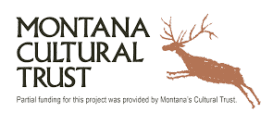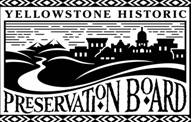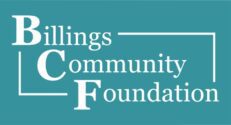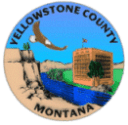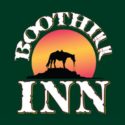Tsistsistas and Suhtaio: Expressions of Northern Cheyenne People

Keith Beartusk, Northern Cheyenne Tribe
What does it mean to you to be a Northern Cheyenne Indian today?
I am very proud to be of American Indian heritage and I feel especially privileged to be a member of the Northern Cheyenne Tribe. The Northern Cheyenne are a proud people, deep in tradition and very protective of their homeland in Eastern Montana. While I have lived and worked off the reservation for most of my career, I have many family members and close friends who do live there and they keep me informed of local issues and events. My position as Regional Director of the Rocky Mountain Region of the Bureau of Indian Affairs in Billings, Montana has kept me in Montana and provides frequent opportunity to visit the reservation and work with the Tribe and the local agency. I take advantage of those opportunities to visit friends and family and also get home on my own time to recreate.
I am very pleased that our elected tribal leaders over time have recognized the value in keeping the reservation land base intact which is so very important in maintaining tribal heritage and our Northern Cheyenne language and tradition. Unlike many tribes who have experienced a shrinking trust land base, the Northern Cheyenne reservation remains 98% in trust status which I attribute to strong and committed leadership.
I also acknowledge and applaud the Tribe’s strong will and determination to protect the reservation from intrusion from outside sources who would exploit the reservation resources and possibly cause damage to the reservation environment. At considerable sacrifice and with very limited resources, Tribal Leadership has turned away the large corporations who would eagerly develop the vast coal, methane gas and possible oil resources beneath the reservation. The Tribe has instead put in place high standards to protect the air, water and reservation land base. I do have hopes that one day the Tribe will consider developing these resources in a responsible and controlled manner and under the strictest of conservation practices. The potential exists to use these valuable resources to bring jobs, educational opportunities and wellness to the tribal membership.
My participation in the Big Sky State Games and Masters Track Meets might be of some interest. I have enjoyed and participated in competitive sports all my life. As my softball and basketball days were slowing down I developed a renewed interest in track and field. In 1987 at the age of 40 I began participating in Masters (old guys) track meets and the State Games participating in the 60 and 100 meter dashes, the long jump, the javelin and one year a pentathlon. Over the years I gathered up 57 medals, 43 of which are gold. I gave up the sport just last year because the knees were getting shaky. I still do play an abbreviated softball season on a competitive level.
What are some challenges you face being a Northern Cheyenne and how have you overcome these challenges?
My wife Debby and I are very fortunate and consider ourselves blessed at this stage in our lives not to face any serious personal challenges. I have good health, a wonderful family and my career has been rewarding and thus far successful. My two daughters are very well educated and they are married to fine young men. My eldest daughter, Miki, has a degree in Civil Engineering and she works for the Montana Department of Transportation. My youngest daughter, Tahnee, has a Masters degree in Business Management and she works for IBM. I am very proud of them and our two grandchildren. We are thoroughly enjoying our new roles as grandparents.
The challenges I faced being a Northern Cheyenne came early in life. As with many Indian children I was raised on the reservation, isolated from the world and part of a large family with little income. My childhood was actually a very happy time, I suppose because we didn’t know what was out there in the world beyond the reservation boundary. And, because most everyone around us was equally poor, we didn’t know we were missing anything. The challenge was to get a good education under those circumstances, develop a sound work ethic and develop the self-confidence to become successful as an adult.
My parents, Kenneth and Dolly Beartusk, saw to it that we got as good an educational experience as the situation allowed. I give them a great deal of credit in this regard for their own educational experiences were quite negative and involved much personal sacrifice. They had to spend many years away from family, in my father’s case in very strictly run government boarding schools and in my mother’s situation, living the entire school year far away with relatives. My father told of spending even some summers at government boarding schools because no family member showed up in the spring to retrieve him. Despite these experiences, they understood the value of education and insisted that my siblings and I attend regularly and work hard in school. They made it clear to us early on that they would accept no less than a high school education.
Developing the necessary self confidence posed a particular challenge for those of us that came from these isolated Indian reservations with small, poorly equipped schools. To complicate matters more, while I never learned to speak the Cheyenne language, my father, schoolmates and friends did, so I did learn to understand the language and negotiate my way in a bilingual setting. In this environment and without access to television and other learning media, I did not develop much depth in the use of the English language which proved to be a serious deterrent to building self confidence.
I was fortunate in that learning came easy to me and I enjoyed school and success builds confidence. However, I attribute my participation in organized athletics as being the single most contributing factor in developing self confidence. Competing as a member of a team helps to build leadership skills and develops a competitive drive and the will to win. These attributes carried through to other facets of life and contributed significantly to providing me with the self confidence to be successful.
Some other part of overcoming these obstacles simply came from a strong will and much determination. A humorous example involves my experience in becoming a smokejumper for the U.S. Forest Service late in my college years. Growing up on the reservation, I had never been to an airport let alone step foot in an airplane. As it turned out the training regiment for the smokejumper program included seven practice jumps so the first seven times I flew in an airplane, I jumped out! I didn’t land in an airplane until my first fire call came and the mission was aborted due to severe weather conditions resulting in our return to the base. I never let on to the other three dozen or so trainees that I had never flown before but simply went through the paces as if nothing was amiss.
Where do you see the Northern Cheyenne people going in the future?
My vision for the future of the Northern Cheyenne people is that we become self sufficient as a Tribe and successful in the business world. This will involve restraint from the evils of illegal drugs and the abuse of alcohol. It will include an understanding of the value of a high quality education and ample opportunity to achieve that education. My vision includes much improved economic development opportunities and the creation of many well paying jobs on the reservation.
The requirements of my vision will be that we develop a portion of the natural resources on the reservation in a responsible manner with the proper conservation practices in place. This will be necessary in order for the tribe to afford these badly needed goals. My vision would also include the realization on the part of the people that our reservation is not large enough to support our growing population and that at least on a temporary basis, some of our people would have to seek jobs and educational opportunities off the reservation. This is necessary in order to take some of the pressure off the limited resources on the reservation and to enable the tribe to expand our experience and skill base. My vision lastly would be that through this all, the people would be able to stay closely enough connected to maintain our culture, language and traditions which we value so highly.

Adeline Fox, Northern Cheyenne Tribe
What it means to me to be Northern Cheyenne Indian today.
First, I must be at peace with myself and always respect my Cheyenne heritage, traditions, and culture. I have to always remember, that my ancestors and the past elders of my Cheyenne tribe were very respectful, to one another, and they were proud of who they were; they maintained good faith and respect for their families and children. They maintained good friendship with their allies. They protected their Cheyenne people from the enemy. The societies of the Cheyenne were strong and worked together in unity to protect and preserve the Cheyenne way of life. The elders told stories of the past. The young people listened, so they could carry on the responsibilities of being a true Cheyenne. They spoke the Cheyenne language with high honors of passing it on to the young generation. These elders were teachers and are always remembered in spirit and in prayer. The Cheyenne always say, “Neaese – meaning- Thank you” in Cheyenne. Today, I realize there are more words of wisdom that was shared with me by my own elders in my family. Today, I am grateful that my family was there for me when I was growing up. My grandparents were the best teachers on the past Cheyenne history, culture, traditions, historic and sacred sites, the Cheyenne language, nature, and more. Also, I am fortunate to get my education so I could survive the competitive society, and learned to communicate in both the English and the Cheyenne language. Being a true Cheyenne is to maintain my serenity and my Cheyenne way of life. I will continue to teach the children what I had learned as a Bi-cultural citizen.
What are some challenges you face being a Northern Cheyenne Indian and how have you overcome these challenges?
My biggest challenge is within myself I wake up in the morning with my daily meditations and I ask myself, “When can I do best to make it better for my family and my Cheyenne people?” I had to learn to accept the good and the bad challenges as they come and go in my life. Truly seeing and feeling the effects of every day social problems among the young people that are suffering with alcoholism and drug abuse on the reservation. Sadly, many children are being affected with abuse, and they are our future. They have a responsibility to carry on what the Cheyenne elders had taught us to do as Cheyenne people. However being powerless over the challenges, we can only do so much to be part of protecting the “Cheyenne Way of Life”.
Where do you see the Northern Cheyenne people going in the future?
On the positive side, I believe the Cheyenne people will soon see the reality of problems on the reservation and the President of the tribe will make directive orders to the tribal programs and will say, “The Cheyenne’s in the past had always been brave, strong and challenging of all their responsibilities. Let us unite and protect the Cheyenne way of life. Let us come together and fight against these problems affecting our people!” Now, the tribal programs can go out in the community more, to educate, intervene families with problems, and to do prevention activities for the young people. Maybe in the future we will all be respectful to each other. As a result there shall be peace among Cheyenne people.
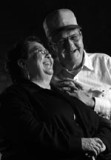
Vonda and Francis Limpy, Northern Cheyenne Tribe
Vonda Limpy
To be a Northern Cheyenne woman means to have pride and gratitude in who I am. It means to remember what my elders have taught me, which are I must stand behind my word and promises. I have been married to my husband for almost 47 years. I am a mother, a grandmother and a great-grandmother. I was born and raised on our homeland. Since I wasn’t really raised in a traditional lifestyle, I always had a lonely empty feeling growing up until I got involved with the sweat lodge and ceremonies. I guess I just needed to be taught who I am. I am more open to the spirit of Mother Earth and all she provides for us and for the spirits of all that live because of her. Most important of all I have learned to pray and to lean on the prayers of others.
Some of the challenges I and many others face nowadays are facing and dealing with alcoholism and drugs and the effects on our people, especially the children and families. I see how it has affected my own family-immediate and extended. I reached out for help for ways to deal with my feelings regarding this disease that eats up our loved ones. I found I can still love them but do have ways to take a stand to help them.
Sometimes we meet up with people who want to use us because we have been blessed with our ways and they are good for us. Some are sincere and those we respect and welcome. Others aren’t sincere and those we shy away from. I’m not a political person so I don’t get involved with that. But I do pray for our leaders and all those who have a say about what happens to our people.
By being more dedicated, unselfish, responsible and caring I see our people helping each other become stronger and healthy. By being positive we can pull ourselves out of the alcoholism, drugs, poverty and high crime rate that we find ourselves in today. We will be a more spiritual people also. We need to share our knowledge of our traditional ways with our children, grand children and great grandchildren. Our ways will give them guidance and strength in the years to come, especially when we are no longer with them.
Our work in developing Prayer Lodge for women and families will also be a special place to bring healing, strength and guidance for our women and families especially. This is a place where feelings, prayers, thoughts and ideas of each individual is a good thing. That support and approval gives value to our lives and helps build self esteem. I enjoy being on the Board, and am determined to do all I can to see Prayer Lodge continue to grow. I have become a stronger woman because of my involvement with Prayer Lodge.
Francis Limpy
I am proud to be part of a tribe that has very good traditions that were handed down by our elders, many of whom are now gone. I have learned many ways on how to deal with life. I don’t know all of the ways but the ones I have learned to use in everyday life and really do appreciate. One of the things I have learned is about standing out, if you do, another person will criticize you so I never tried to stand out as I felt I was never a perfect Cheyenne. The way I learned to deal with this was to let it go and continue on.
Songs are important to the Cheyenne way and I was told that if a person wanted to learn the songs then go to the sweat and ask. I learned powwow songs, sweat songs and Sundance songs, I admire other people who can explain our traditions and ceremonies in a good way since I can’t do that but I have shared what I learned with anyone who asks.
I wouldn’t want to be a chief as to be a true chief you have to take all of the people as your children, the whole tribe, which is very important. These people who have chief roles have a lot of responsibility and to be a good chief or have that role is very time consuming so I try to help by giving support and offering to help them in any way I can. This is important for all of the people to remember too, to help each other any way we can. I see many challenges for the Cheyenne people and one of the biggest is the alcohol problem, of which I was a part of and am now in recovery. I believe alcohol and drugs are against the Cheyenne way of life. The alcohol way of life teaches you to be a liar, a cheat, sneaky, selfish and self centered. The traditional way of life teaches you to love and to share what you do have. To care for all of your relatives and to care for the earth we live on. Respect the animals all around us and to talk and pray to our Creator who gave us all the good things in our life. I appreciate the many gifts I. have received from our Creator and am thankful for them. Some of the most important gifts I have seen are my grandchildren and great grandchildren.
Sweet Medicine made several predictions and many have come true. One that stands out right now is that the Cheyenne will not know each other and will turn crazy. I believe this was brought about by not learning traditional ways of life. If this continues it could lead to the end for the Cheyenne. If the Cheyenne people give up alcohol and drugs and live the traditional way of life “a return to the caring and loving way of life” they will again be the great tribe that they were.
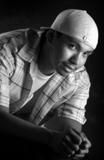
Cordell James (C.J.) Little Coyote, Northern Cheyenne Tribe
What does it mean to you to be a Northern Cheyenne Indian today?
Being a Northern Cheyenne means a lot to me because I was raised to respect my elders and take pride in my family and my tribe and being a Northern Cheyenne and all the history that the Northern Cheyenne people have such as our religion we are still very much into today opposed to other tribes. I am also very proud to be Northern Cheyenne because that’s who I am and learning all that my tribe has gone thru and how hard it was and how easy we have it today. I thank my Cheyenne elders for all that they had to suffer through to get were we are today. Me being a Northern Cheyenne makes me very proud of my heritage and my tribe.
What are some of the challenges you face being a Northern Cheyenne and how have you overcome these challenges?
Some challenges that we face today as Northern Cheyenne, I would have to say that we the younger generation don’t know enough to keep our tribal ways going. I think that us not having the knowledge that our elders have is going to hurt our tribe in the future. I think that the youth of today need to start listening and learning from our elders so that when we get there we will have the knowledge that they have and will know how to run a ceremony correctly and in other situations as well. The younger generation not having that knowledge is to me probably the biggest challenge that we need to do something about. We the younger generation need to start listening and learning to everything all our elders have say and need to respect our ancestors by caring on what we have today and not losing what we have.
Where do you see the Northern Cheyenne people going in the future?
I see my tribe the Northern Cheyenne people doing big things and taking care of our reservation if we all work together. And see the same goal of preserving our tribe and all the history that we have and take pride in each other and praise each other instead of putting each other down. I think that the my tribe is very capable of making changes that are good for our tribe, we just need to all work together and do some thing about it in a positive way that is good for all our tribe. The Northern Cheyenne are some very proud people and we need to also be proud of our reservation and take care of our natural resources as well as our homes and just over all our reservation. Over all I think that the Northern Cheyenne people my people are going in the right direction and will continue if the younger generation learns from our elders.
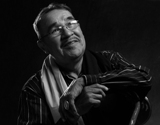
Charles Little Old Man, Northern Cheyenne Tribe
What does it mean to you to be a Northern Cheyenne Indian today?
My name is Charles Little Oldman, I am Suhtai and I speak the Suhtai language. My Cheyenne name is Medicine Beaver, my grandfather Charles Headswift gave me that name because I was born in March, in Suhtai way the first sign of spring is when you see these three stars in the eastern sky in the very early morning hours. The three stars are called Medicine Beaver.
I am a former Sacred Hat Keeper, I took care of our Sacred Bundle from 1987-1992. Everything is changing today, not just here on our reservation, but all over the world, life is changing. Today our new generation can’t speak our language or don’t want to speak our language. Most everyone speaks English.
Being a Cheyenne Indian today means many things to me, it means trying to preserve our Cheyenne traditional way of life. I try in my own way to help our young people in the best way I know how about our healing ways, some of the ceremonies I’m able to share with them.
I pray with the young people whenever and wherever I am asked to do so. I belong to a drum group and try to teach them the different songs, their meanings and when it’s appropriate to sing them.
What are some challenges you face being a Northern Cheyenne and how have you overcome these challenges?
The English language is a big challenge for me. I didn’t finish high school, now I have a tough time expressing myself; I always try to encourage our young people to get educated. Alcoholism and diabetes are also some challenges I’ve faced. I was able to overcome alcoholism by going through a treatment program not just once, but, several times, before the program made sense to me.
Then diabetes took over my body, it was a challenge to get up every morning and put a prosthesis, on so, I could take a step and walk around. Now I watch my diet and exercise every day. Many Native Americans don’t understand that’s how you control diabetes, instead of disease controlling you.
What makes this possible for me? It’s prayer, I believe in the power of prayer, my grandmother raised me that way. She taught me and showed me how to make prayer an important part of our everyday life when you get up in the morning and before you go to bed at night. That’s how I overcame the challenge in my life. I try to go to prayer sweats once or twice a week. We go to church on Sunday, we try to continue our spiritual ways. Then we go to a prayer sweat. My grandmother used to day, never put down other places of worship because all ways of prayer are good.
Where do you see the Northern Cheyenne people going in the future?
Our prophets Sweet Medicine and Erect Horns predicted that we would lose our identity as Northern Cheyenne and Suhtai people if we didn’t follow their way of life, what they had shown our people.
I see that happening today, very few young people speak our language fluently. People are losing respect for each other and our spiritual ways.
Everyone is affected in some way by people who are involved in alcohol and drug abuse, there’s too much denial and our young people are losing their lives because of it.

Major Robinson, Northern Cheyenne Tribe
What does it mean to you to be a Northern Cheyenne Indian today?
As a young Indian man at the age of eighteen I felt trapped having been raised on the reservation all my life and planned my escape from the poverty and despair I saw around me.
A year later, as I traveled across the country, I will never forget finding myself standing in front of a marker near Ft. Robinson, Nebraska. On that cold winter day I read in horror about our relatives who, in the middle of a freezing 1879 winter, laid their very lives on the line in order to fight their way home 400 miles away, the very same home I was running away from. It was at that very moment I realized the sacrifice our Cheyenne ancestors paid with their very lives in order that we might have one another, our culture and our beautiful homeland.
It is for this reason and many more that we must never let our Cheyenne ways of life perish. To me it isn’t enough to just say that I am Cheyenne, in addition, I must live it. To me I get to walk in the spiritual footsteps of our ancestors by practicing our traditions and ceremonies on a day to day basis and not just learning about them. It is my belief that in living our traditions we find their relevance in our modern day lives. I also believe we must use our Cheyenne language so that it is never forgotten. I am not satisfied to merely preserve our culture; I believe we must live it.
Being Cheyenne, to me, is never forgetting where I came from and remembering the struggles my relatives endured in order that our people may still exist today. I believe if you don’t know where you came from how do you know where you are going?
What are some of the challenges you face being a Northern Cheyenne and how have you overcome these challenges?
For many years I struggled with not feeling completely at home in either the Cheyenne culture on the reservation or the dominant culture off the reservation. Over the years I have found in traveling back and forth from one culture to the next that acceptance was the key to my struggle. All I needed to do was accept that I am Cheyenne and worthy regardless of where I am presently. No better, no less. It was then I was able to walk with confidence in both cultures.
Dealing with non-Indian peoples’ misconceptions about American Indians has been a challenge. In many cases people are uneducated about what being a Cheyenne means on and off the reservation. I have found that I can be a bridge to allow understanding from one culture to the next, having lived in both.
Where do you see the Northern Cheyenne people going in the future?
I see our Cheyenne people embracing what makes us unique as an Indian Nation without isolating ourselves from the benefits from the outside world. I believe if we protect and live our Cheyenne culture day to day we will have greater confidence to seek the good in all other cultures and in doing so help our Nation, our brothers and sisters from other Indian Nations, the State of Montana and other Nations to flourish as well. As one of our greatest Cheyenne leaders, Dr. John Woodenlegs said, when we as Cheyenne’s learn to live with one foot in each culture we will know true success.
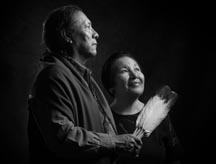
Tom and Charlotte Rockroads, Northern Cheyenne Tribe
Charlotte Rock Roads
What does it mean to you to be a Northern Cheyenne Indian today?
To me being a Northern Cheyenne today means I am a woman who was taught by my mom to be honest, to be responsible, to keep hope and to gain wisdom throughout my life. She taught her children traditional values such as never be mean or hateful, always be proud even if you don’t have very much. If you are asked for help always be willing to help however you can regardless if it is a baby or an elder, we were taught to live each day by the Cheyenne traditions and values.
Women have certain roles in a family and in the tribe and one of them is beadwork which I learned. Other duties included learning to know what we eat. We need to know how to preserve and dry meat, what berries to gather and how to keep them. What can be used for tea and how to prepare it and what it’s used for. Learn what mushrooms to pick and when, the same for wild turnips and wild onions. There are traditional ways of gathering the proper food at the proper time so that you know what you are feeding your family. My mother taught me to love my children unconditionally, to care for them regardless of the challenges they present and to help them through tough times. I learned all of this and passed these values onto my children and learned that my children and grandchildren are very precious. These are just some of the roles for Cheyenne women that are an important part of the traditions of the tribe.
What are some challenges you face being a Northern Cheyenne and how have you overcome these challenges?
One of the other items that she taught me was that we should always know our language and to ask an elder if you had questions. This was a challenge for me as I grew up with Cheyenne as a first language and when I entered school at Birney, I was punished for speaking Cheyenne. This left such a negative impression on me that as a young child, I decided that when I had children they would have English as their first language. I had children and they all spoke English first. I regret this and if I had to do it over I wouldn’t let it happen again. I struggled with English and feel that these lessons in school kept me from pursuing a higher education, but I know that children can have Cheyenne as their first language and still learn. I know that keeping our language is very important and if you don’t speak your language it is never tool later to learn. My goal now is that my children and grand children will all learn to speak Cheyenne. I feel that as we lose our language we are losing some of our traditional ways, we are forgetting respect and to all work together as a tribe.
Where do you see the Northern Cheyenne people going in the future?
I see the Northern Cheyenne people adapting to modern day life. As, we have been doing since the early reservation days. I remember my elders explaining to us, life as we knew it, has changed forever. And to adapt to a white man’s world we needed a white man’s education. I remember as a very young girl, all of the village children were sent to boarding schools St. Labre Indian Mission School and BIA Indian boarding school at Busby. I remember we were all feeling confused and lonely for our families. So in a sense, this is where we began to adapt to modern day life. Today, I see my children and Cheyenne youth taking on great challenges. I stress to my children and the youth the most important goal is an education.
Sadly we are losing our foundation, our Cheyenne language. I am positive, that we can save our language. Through awareness and education. I’m positive we can pass our oral traditions to our youth. This way we can continue the Cheyenne culture.
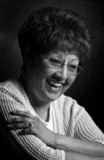
Wilhelmina Schmidt, Northern Cheyenne Tribe
To be a Northern Cheyenne today is very humbling. I was not raised in a Cheyenne traditional family and even though my dad spoke Cheyenne he told us that we were going to live in a white man’s world, so he never taught us the language. There was such a negative connotation about being an Indian when I was growing up that for many years in the professional world when people thought I was Mexican, I never corrected them. They were troubling times for Indians. I lived off the reservation after I married and didn’t feel connected to my Cheyenne heritage. I felt that there was a big blank space when asked about my Cheyenne traditions. When I moved back to the reservation, I started to learn that many of the values I was taught by my mother were traditional as well as spiritual. And that both were part of being a Cheyenne.
My mother, who died at a very young age, was a very Christian woman and from her I learned to grow in my own faith. I come from a very large family and our Mother was a strong presence in our life. She taught us to “always speak nice of others or not say anything at all,” and “that we would know in our hearts what was right and wrong”. She did not work outside of the home until later years when her children were older. I learned to have a sense of humor and good work ethics from my mother. It wasn’t until later did I realize how much knowledge she had really passed on to me. At times I have felt I never really got to know my mother.
When I moved home to the reservation later in my life, I started to learn more about the Cheyenne ways and to appreciate the values and ceremonies. My sister, in the Cheyenne way, tells me that she sees all of my professional jobs and life have been geared towards helping people and that is a Cheyenne value. I don’t know much about the societies but what I have learned has become very important to me because of my teachers. They are living the traditional life and I find many of my parents’ lessons in them; I appreciate the time they have taken to teach me as it has helped me in my everyday life and I am becoming a better person because of their help.
As Cheyenne, we face many challenges and just being a Cheyenne woman is one of them. We face family problems, drug and alcohol abuse and it is hurting our families. I believe these abuses are destroying our younger people and I have seen it happen to loved ones. I have many mixed feelings and I worry about our leaders and the roles they have for all of us. I believe, we need to have a better system of communicating with each other and we need to get rid of the negativity that we carry.
I participate on many community boards and see change is possible but it needs to come from all of the people. We are in a negative destructive pattern and I hope that for our future and our children’s future, we can overcome this obstacle. It, seems to me the more I learn about living as a good Cheyenne that we need to draw on our traditions and use them to strengthen our families. And so, although I say I am not from a “traditional” family, I have learned that I carry many of these values in my heart.
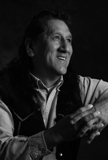
Ronald Seminole, Northern Cheyenne Tribe
What does it mean to you to be a Northern Cheyenne Indian today?
Being a Northern Cheyenne Indian today is a complex situation for definition. With the elders seventy years and older they view our way of life as diminishing and nearly extinct life as far as traditional values, concepts and spirituality are concerned.
Then there are the coming of age “Elders to be” fifty five years of age up to seventy years, whose teachings were taught early on in life with explanation of rituals, ceremonies, beliefs and a host of familial background learned from our great grandfather’s, grand folks, who spoke to us in the Cheyenne language.
It is with us an understanding of trying to preserve all that it took to be a Cheyenne in the old way, meaning the tribal participation of carrying on the good things derived from all of the tribe being the knowledgeable experts in whatever society they belonged to or whatever needed to be questioned by the younger generation.
Now with those in high school, middle school and elementary levels, it is hard for those of us who still speak the Cheyenne language of the Northern Cheyenne to teach them in the language learned from Anglo society. The English language leaves such a big gap in trying to teach from a bilingual approach.
First this generation who are to become our next generation of Cheyenne’s do not have Cheyenne, fluent speakers, and other value systems with concentration being on two way people connection and understanding of the Cheyenne way of life in its fullest potential.
What are some challenges you face being a Northern Cheyenne and how have you overcome these challenges?
As a bilingual aide in the years past there was an enjoyment in having parents and students being able to understand their child learn colors, names of animals, small phrases of greeting another person in Cheyenne.
Yet there was and is a limited acquisition of the Cheyenne language that falls short of for the full potential use of the Cheyenne way of life in using the Northern Cheyenne language to promote a continuing and appreciated use of the language in our daily lives.
There is a very small number of the younger generation who by participation in the Sweat Lodge ceremonies who have mastered the songs and ritual meanings. Hopefully these participants will carry on that small accomplishment even if they have to use the English to promote their belief systems in the coming generations of Northern Cheyenne people.
Where do you see the Northern Cheyenne people going in the future?
To quote Sweet Medicine or to paraphrase his predictions, our Northern Cheyenne way of life as members of the tribe has met those predictions with the dying of the language.
In reference to his meanings of what he foresaw and what we see by comparison in the way we are living, one wonders have we as Northern Cheyenne come to the “point of no return”? I say this because of the implications and interpretations that was as speakers and interpreters of the Northern Cheyenne we owe a small hope that all is not futile.
I know that this essay falls short for comprehension because of the language barrier. It “the Cheyenne language” from one Cheyenne language speaker to another has its benefits and needs little to be questioned for its meanings.
If I could say all the above mentioned in Cheyenne it could be better interpreted with a Cheyenne interpreter.
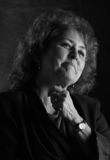
Sandra Spang, Northern Cheyenne Tribe
What does it mean to you to be a Northern Cheyenne Indian today?
It means that my family is larger than that of most people. To belong to a Tribe and especially to be born and raised on a reservation it means you have a family that numbers into the thousands. We share a beautiful land base that we cherish and where we have many memories in common. Our greatest treasure is not the material things we share but our Elders. They are our teachers. They hold our history in their minds. They connect us. I had the privilege of growing up on the reservation at a time when life was hard and people were poor but I would not trade that for anything. I didn’t have the distractions that young people today have and so I was free to examine the hills and creeks, the plants and animals. With my siblings and friends we discovered the real treasures the reservation had to offer.
Our Grandparents were involved in every aspect of our growth and were our motivators. We tried to earn their respect. My early life has everything to do with what I am today. A family has a closeness that is unique. They have a common history. They share each other’s lives – the happy and the sad. Multiply that by several thousand and you will understand what it means to me to be Northern Cheyenne today.
What are some challenges you face being a Northern Cheyenne and how have you overcome these challenges?
We faced extreme poverty in our younger days. We had to leave our loving home to attend a boarding school for the greater part of the year. I had a father to whom alcohol meant a great deal and we had to live with that. Later on in life I faced the same problem but I overcame it.
We faced prejudice because of our race. We still do but I gained a faith that allowed me to realize that the people who feel this way are in the minority. “THEY” have the problem. I don’t. I learned how much easier it is to care about other people, to give to them, and that it comes back to you. Love is the only thing that you can give away but never run out of.
As I grew up I became a collector, of diseases. In my twenties I found I had multiple sclerosis. Then fibromyalgia, arthritis, heart disease. Recently, I was told that the M.S. was causing me to have a mild form of epilepsy. Life is painful but the faith I have assures me of better times. Living here on the reservation, I have the world’s largest support group.
An added blessing came in the way of a great-granddaughter who needed a home when she was 3 years old. She gives us a reason to get up in the morning. She makes us laugh. She is our sunshine. She allows us to live the grandparent tradition of having a major part in raising grandchildren. The circle of life goes on.
Where do you see the Northern Cheyenne people going in the future?
We have as many problems as any other nation in the world at this time. As far back as we can remember this Tribe had hardships and worked through them. Because of my faith I see a time in the future when a better time is coming. Better than we can imagine under the present circumstances. We will survive.

Zane Spang, Northern Cheyenne Tribe
What does it mean to you to be a Northern Cheyenne Indian today?
At age 65 I have seen a lot of change here on the reservation. I grew up at a time before modern technological advances came into existence. It was much different then. We were very poor but all we lacked was money. We had everything else we needed. It was a good time to be living. Tribal ties were strong. Young people looked up to their elders. They respected them and learned from them. Times have changed and so has family influence. Our children are suffering. Technology itself did not do this but it brought influences in from the world outside that have been hard on us as a Tribe. Life for our youth has strong pressures. I don’t envy them. It does not leave time or inclination to learn of our culture from their grandparents. With other cultures encroaching on our own it must be confusing. But for those of my age to be a Cheyenne today is a source of great pride.
What are some challenges you face being a Northern Cheyenne and how have you overcome these challenges?
For many years I worked in various jobs where I encouraged and assisted young people to plan and achieve their career goals through education. I knew it was important for them as future leaders of our Tribe to learn all they could. But the problem was that I did not have a degree of my own. I had dropped out of school, got a GED, and began pursuit of a degree that took me many years to achieve because I was working full-time and raising a family. At times I commuted 130 miles to class. But I did receive my degree and I finally felt like I could be a role model to those I was encouraging. This degree led to many privileges. I was recognized as Outstanding Alumni for Montana State University at Billings. I worked in positions that allowed me to help fellow Tribal members. I had the honor of being the Service Unit Director at the Indian Health Service Clinic in Lame Deer when we moved into our new modem facility. And my present position as Dean of Student Affairs at Chief Dull Knife College put me back into the educational circle again, assisting young people to reach their educational dreams.
Fourteen years ago my wife and I decided that we would share our lives with the world through a business we started called Cheyenne Trail Riders. It was a risk but we did not borrow any capital to get started. We used what horses and equipment we had. We have been blessed because we have almost all of the same loyal friends helping us who began the business with us. Our list of visitors covers every continent in the world and our guests have become our good friends. They come here to learn about us and they teach us about the world they come from.
Where do you see the Northern Cheyenne people going in the future?
I like to think that, as Cheyenne’s, we are as resilient as our forefathers. When faced with major – even life threatening – changes in their lives, they found ways to cope. They kept this Tribe alive and together. We face many problems today. By ourselves we probably could not survive. But we have a strong sense of familial loyalty to each other and because of that I believe we can meet our challenges.
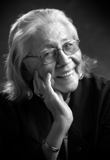
Elva Stands In Timber, Northern Cheyenne Tribe
What does it mean to you to be a Northern Cheyenne Indian today?
I believe myself to be a bearer of the Cheyenne sacred traditions. They were taught to me by my Grandfather Robert Ridge Walker and Grandmother Ethel Ridge Walker. Both were born close to the time of the Little Big Horn fighting. My Grandmother Ethel was born three days after the battle, as the victorious Cheyenne’s were moving South to hunt buffalo, where. Sheridan, Wyoming is today.
Ridge Walker was a bit older, and later he joined the Cheyenne Scouts at Fort Keogh. A strong traditionalist, he was one of the Piercing People. He offered the sacrifice of his own flesh eight times, twice the sacred four times, to bring Maheo’s blessing to our people. Later, he was Stock Association Manager for the Northern Cheyenne Tribe. Strong in the old holy ways, he and his Grandmother carried that strength through-out their lives of nearly a century each.
My parents, John Stands in Timber and Josie One Bear, Stands in Timber, raised me in the same faithfulness to Cheyenne tradition. My father was the Tribal Historian, the one whose mind preserved the People’s history. His book, “Cheyenne Memories”, preserves that which he was taught by the old-time Elders. My mother was a traditionalist Cheyenne woman; strong, generous, serene, good-natured, loving. Both their lives were strong witnesses to the power of the Cheyenne-way that carried our people through the early reservation days, 1884 to the 1970’s. What they taught me enables me, blessed by Maheo, to be both a traditionalist Cheyenne Woman and a modern Cheyenne elder.
What are some challenges you face being a Northern Cheyenne and how have you overcome these challenges?
In my lifetime the greatest challenge was my native Cheyenne, Native American color. I cannot help but sense the difference in my life and culture wherever I am. I began to notice, “No Indian Allowed” signs in the doorways of White establishments. These are from a past that remains clearly in my mind today.
I know I am different as a Cheyenne and an Indian. But I am proud of the fact I have remained true to my Cheyenne Indian identification in spite of discrimination from the outside culture.
I have overcome these challenges by holding fast to the teachings of my elders, who taught me I am unique, beautiful and intelligent because I am Cheyenne. The elders taught me to be respectful to everyone, to be kind and caring. These are the qualities that make me a Cheyenne.
Where do you see the Northern Cheyenne people going in the future?
This is how I see the Cheyenne’s future. Our beloved Cheyenne ancestors paved a good way for us. They survived the walk from Oklahoma, the break-out from Fort Robinson, and the Government’s attempts to wipe out our religion and way of life on the reservation. We held fast to our sacred beliefs and sacred culture during all these more than 130 years since our victory at the Little Big Horn.
Today, however our Cheyenne Nation is being invaded by powerful enemies of another kind, alcohol and drugs. We must win the victory over them as we overcame those who attempted to destroy our people and our culture in the past.
The biggest challenge we face is here and now. Let us be Cheyenne with simple honesty, sober, clear minds, united together in the sacred circle of Maheo’s life that makes the Cheyenne People a holy nation.






